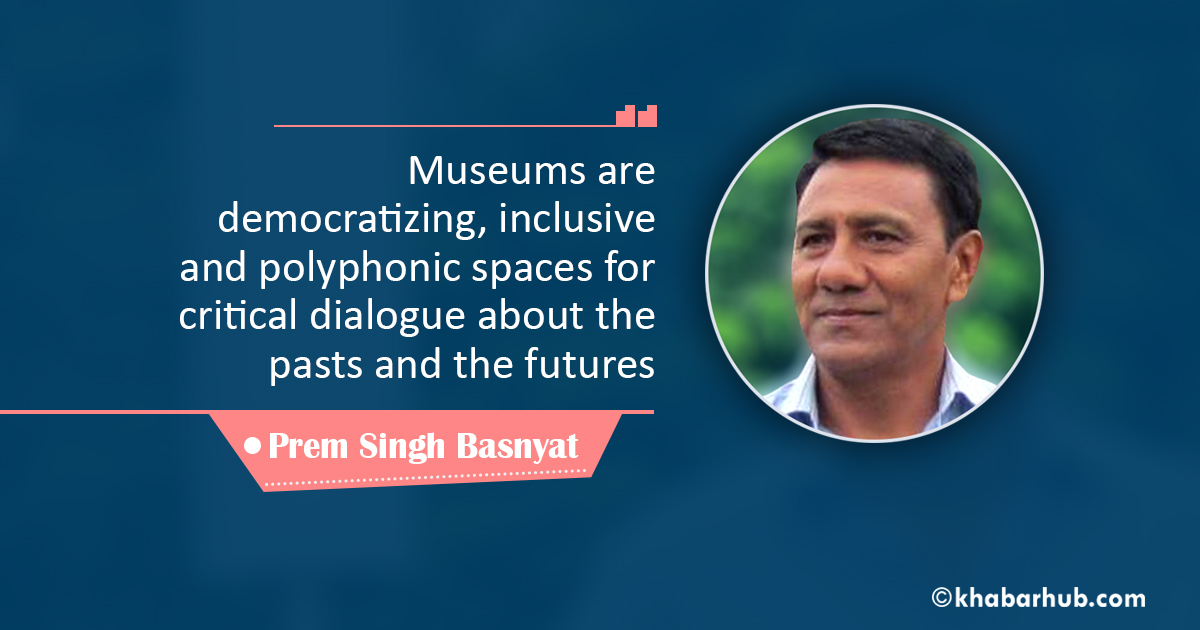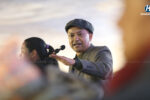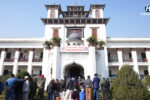Firstly, on 1-7 September 2019- Kyoto, Japan will be the city to receive some 3,000 participants to the International Council of Museums (ICOM ) General Conference and the theme is “Museums as Cultural Hubs: The future of tradition”.
ICOM selects each year for the International Museum Day, a theme that is at the heart of the concerns of society. The present ICOM President is Suay Aksoy.
A museum is a non-profit, permanent institution in the service of society and its development, open to the public, which acquires, conserves, communicates and exhibits the tangible and intangible heritage of humanity and its environment for the purposes of education, study and enjoyment (ICOM Statutes, 2007).
Museums are democratizing, inclusive and polyphonic spaces for critical dialogue about the pasts and the futures. Acknowledging and addressing the conflicts and challenges of the present, they hold artifacts and specimens in trust for society safeguard diverse memories for future generations and guarantee equal rights and equal access to heritage for all people. Museums are not for profit.
They are participatory and transparent, and work in active partnership with and for diverse communities to collect, preserve, research, interpret, exhibit, and enhance understandings of the world, aiming to contribute to human dignity and social justice, global equality and planetary wellbeing (ICOM).
It is the arts and other manifestations of human intellectual achievement regarded collectively. It is the only link that bridges the conflicting and incongruous ideologies between different hostile-like countries.
Secondly, culture is the shadow of human evolution, encompasses political behaviors, diplomatic doings, religion, food, wearing, how we wear it, our language, marriage, music, what we believe is right or wrong, social etiquettes, war techniques, love and empathy, and a million other things.
In other words, it is the arts and other manifestations of human intellectual achievement regarded collectively. It is the only link that bridges the conflicting and incongruous ideologies between different hostile-like countries.
The necessity of the inter-link between the politics and culture has been starkly realized by the high political quarters of the world only in the post-war period, following the diabolical and deadly consequences of stamping out every other culture excepting that of Nazi Germany by Hitler thinking it to be either decadent or barbaric.
The culture of the East and West – irrespective of high and low, though not interrelated in thoughts, feelings and behaviors have been tending to march together on equal footing since then thus bringing the interchange of arts and ideas.
There is no doubt that the unity of language and culture brings home the homogeneity of thinking, feelings, and emotions. But the heterogeneity of culture and languages is not without being influenced by the kindred feelings and emotions with each other.
The concept of “Cultural Hubs” suggests the role of museums as central axes for the exchange of information that transcends time, be it centuries, political eras, or generations.
Thirdly, the hub is like the central part of a wheel, rotating on or with the axle, and from which the spokes radiate and tradition is the transmission of customs or beliefs from generation to generation or the fact of being passed on in this way.
Similarly, a museum is the hub of culture and social science for future generations. In this regard, International Museum Day, which will tackle the same theme as the ICOM General Conference Kyoto 2019, will kick off the global conversation on the “Museums as cultural hubs: the future of tradition”.
The concept of “Cultural Hubs” suggests the role of museums as central axes for the exchange of information that transcends time, be it centuries, political eras, or generations. This long-term conceptual framework fostered a meaningful General Conference with groundbreaking discussions on the museum definition, sustainability, and the correlation between museums and local development.
The theme “Museums as Cultural Hubs” is particularly relevant for having been the unifying theme of the 25th General Conference of ICOM, held in the same venue as the 1997 Kyoto Protocol to the United Nations Framework Convention on Climate Change.
Finally, tradition is the unwritten or oral delivery of information, opinions, doctrines, practices, rites, and customs, from father to son, or from ancestors to posterity; the transmission of any knowledge, opinions, or practice, from forefathers to descendants by oral communication, without written memorials.
The main difference between culture and tradition is that culture is the ideas, customs and social behavior of a particular social group whereas tradition is the transmission of customs and beliefs from one generation to another.
Upcoming ICOM Meeting in Japan – September 2019
ICOM –Japan interprets as the concept of “Cultural Hubs” suggests the role of museums as central axes for the exchange of information that transcends time, be it centuries, political eras, or generations.
This long-term conceptual framework fostered a meaningful General Conference with groundbreaking discussions on the museum definition, sustainability, and the correlation between museums and local development.
“Cultural Hubs” also encompasses the ability of museums to traverse national and geopolitical boundaries. The milestone discussions that took place at this third-ever General Conference in East Asia encompassed such topics as Asian art and manga, marking a renewed commitment to integrate Asian museums and culture into the ICOM community.
Finally, the concept of “Cultural Hubs” suggests how museums can play a generative role in forging transverse connections across divergent fields. Museums can help us discover the integral relationship between the humanities and the sciences. In this sense, it is highly significant that the discussions at ICOM Kyoto included such interdisciplinary subjects as disaster risk management and archives.
To meet the trans-temporal, trans-national, and trans-disciplinary needs of a new era, we propose that ICOM assert its commitment to flexible, integrative discourse through an adaptation of the conceptual framework “Museums as Cultural Hubs”.
(To be continued…)
(Views expressed in this article are the author’s own and do not necessarily reflect Khabarhub’s editorial stance).









Comment